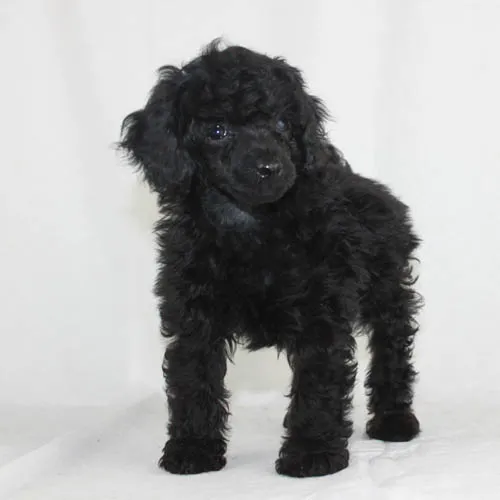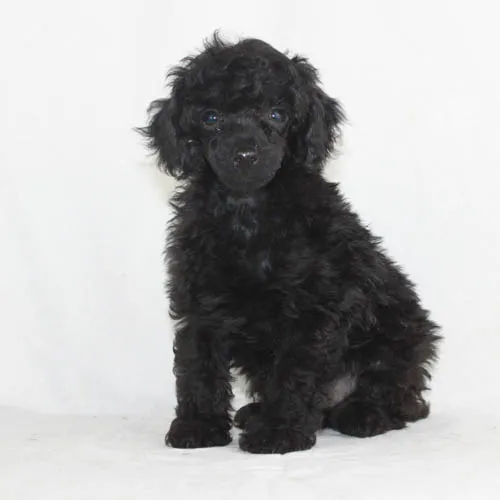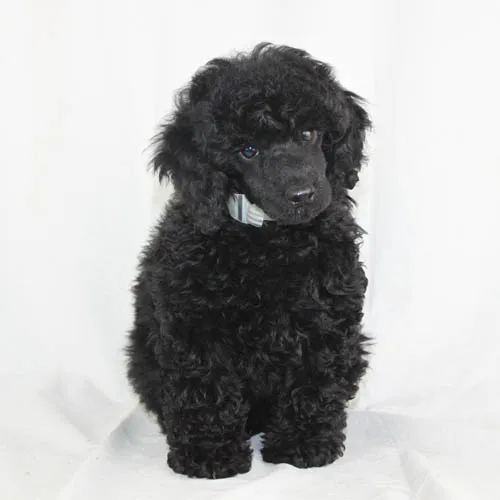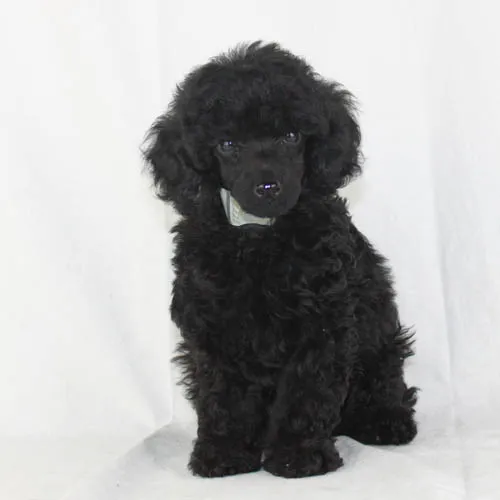Are you dreaming of adding a sophisticated and playful companion to your family? Look no further than the enchanting world of Black Female Toy Poodle Puppies For Sale. These intelligent, elegant, and utterly charming dogs are renowned for their affectionate nature and distinctive appearance, making them a cherished choice for many households. At Dog Care Story, we understand the unique joy these little bundles of joy bring, and we are dedicated to providing you with comprehensive insights to ensure you find the perfect match.
The Allure of Black Toy Poodles
Black is a classic and striking color for Poodles, lending them an air of timeless elegance. A black female toy poodle combines this sophisticated hue with the petite and agile size of the toy variety, creating a dog that is both captivating and wonderfully adaptable to various living environments. Toy Poodles are known for their bright personalities, their eagerness to please, and their remarkable intelligence, which makes them highly trainable. Their hypoallergenic coats are another significant draw, meaning less shedding and a more comfortable experience for allergy sufferers.
 A charming black female toy poodle puppy sitting attentively
A charming black female toy poodle puppy sitting attentively
When you are searching for black female toy poodle puppies for sale, you are looking for a companion that embodies grace, wit, and boundless affection. These puppies are not just pets; they are intelligent beings capable of forming deep bonds with their human families. Their playful spirit means they are always up for an adventure, whether it’s a game of fetch in the park or simply snuggling on the sofa. The striking black coat of these toy poodles is a statement of their sophisticated beauty, making them stand out in any setting.
Finding Your Perfect Black Female Toy Poodle Puppy
The journey to finding your ideal canine companion should be a rewarding one. When seeking black female toy poodle puppies for sale, it is crucial to partner with reputable breeders who prioritize the health, temperament, and genetic soundness of their dogs. A dedicated breeder will not only provide you with a healthy puppy but also offer invaluable guidance and support throughout the adoption process and beyond.
At Scarlet’s Fancy Poodles, a commitment to excellence in breeding is evident. They proudly offer a selection of black poodle puppies for sale, emphasizing the exceptional quality that comes from decades of specialized breeding. Like all their toy and miniature poodles, their black poodle puppies are raised with meticulous care. This ensures each puppy is happy, healthy, and meets high standards of breed quality. The breeder’s dedication extends to ensuring that each of their black female toy poodle puppies finds a loving and appreciative home.
 Several black poodle puppies playing together
Several black poodle puppies playing together
What to Expect from a Reputable Breeder
A reputable breeder will typically:
- Prioritize health and temperament: They will conduct genetic testing and ensure their breeding stock is healthy, and the puppies are well-socialized.
- Be knowledgeable and transparent: They should readily share information about the puppy’s lineage, health records, and the breed’s characteristics.
- Have high standards for owners: They care deeply about the well-being of their puppies and will often have an application process to ensure a good match.
- Offer support: They should be available to answer questions and provide advice even after you take your puppy home.
When you consider purchasing black female toy poodle puppies for sale from a place like Scarlet’s Fancy Poodles, you are investing in a pet that has been bred with passion and expertise. They are invested in finding the right forever home, understanding that this is a lifelong commitment for both the dog and the owner.
Preparing Your Home for a New Toy Poodle
Bringing home a new puppy, especially a black female toy poodle, is an exciting time that requires some preparation. Ensuring your home is puppy-proofed is a fundamental step. This involves securing electrical cords, removing any toxic plants or small items that could be a choking hazard, and designating a safe space for your new pet, such as a crate or a comfortable bed.
 A close-up of a black toy poodle's face
A close-up of a black toy poodle's face
Essential Supplies for Your New Puppy
Before your black female toy poodle puppy arrives, gather these essential supplies:
- High-quality puppy food: Choose a food formulated for small breeds and young dogs, recommended by your breeder or veterinarian.
- Food and water bowls: Stainless steel or ceramic bowls are hygienic and easy to clean.
- Leash and collar/harness: Opt for a lightweight leash and a comfortable, adjustable collar or harness suitable for a toy breed.
- Crate or carrier: This provides a secure den for your puppy and is invaluable for housetraining.
- Comfortable bedding: Soft blankets or a dedicated puppy bed will make their sleeping area cozy.
- Chew toys: Poodles, especially puppies, need appropriate toys to satisfy their natural urge to chew and to keep them entertained.
- Grooming tools: A brush, comb, nail clippers, and puppy-specific shampoo are essential for maintaining their coat and hygiene.
When you bring home a black poodle puppy, you’re not just acquiring a pet; you’re welcoming a family member. Reputable breeders like Scarlet’s Fancy Poodles understand this and often provide additional benefits, such as permanent microchip identification and a health guarantee on genetic issues, giving you peace of mind.
 A playful black toy poodle puppy looking at the camera
A playful black toy poodle puppy looking at the camera
The Lifelong Commitment to Your Toy Poodle
The decision to get a black female toy poodle is a commitment to providing a loving and enriching life for many years. Their intelligence means they thrive on mental stimulation and social interaction. Regular training, socialization, and plenty of playtime will ensure your toy poodle grows into a well-adjusted and happy adult. Their grooming needs are also significant; regular brushing and professional grooming are necessary to maintain their distinctive coat and prevent matting.
If you are ready to open your heart and home to one of these exquisite companions, explore the options available. The search for black female toy poodle puppies for sale can lead you to a breeder like Scarlet’s Fancy Poodles, where the health and well-being of their puppies are paramount. By carefully considering your options and preparing your home, you can ensure a beautiful beginning for your new four-legged family member. They offer a chance to experience the unique joy and elegance that a black toy poodle brings into a home.
